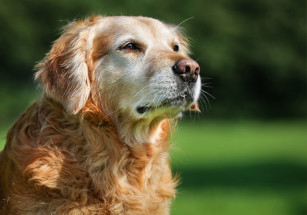It's not just what we know... it's how much we care!
Cancer Treatment & Chemotherapy
Unfortunately, just like in people, cancer is regularly diagnosed in pets. Sadly, it is the most common cause of our pets not reaching their full life expectancy. The diagnosis and management of cancer in pets has improved significantly in recent years. Modern advancements in treatment mean that pets diagnosed with cancer can now live longer and have much better outcomes with fewer (if any) side effects. Essentially, even pets living with advanced cancer can have happy and pain-free lives with the help of chemotherapy. Each case is different and the primary focus should always be on quality of life, not necessarily complete cure.
Management of cancer in pets can involve a variety of different treatments including surgery, radiation and chemotherapy and sometimes these treatments are used in combination to maximise the chance of a cure, where this is possible. Chemotherapy is often recommended in cancers that are at risk of spread to other parts of the body (metastasis) or cancers that cannot be treated with surgery alone. Chemotherapy may be recommended if there are microscopic cancer cells left after removal of a cancerous mass. Unlike radiation, which is administered at specialist referral centres in major cities, chemotherapy is available at Wingham & Valley Vets to treat your pet’s cancer close to home.
Wingham & Valle y Vets are proud to offer a comprehensive chemotherapy service for pets with cancer. This service allows our patients to have their cancer managed and treated locally, whilst still accessing the most up-to-date specialist chemotherapy protocols. Without this service, pet owners would need to travel several hours, often weekly for many months, to have their pet’s chemotherapy administered. In our experience, undertaking a chemotherapy protocol in a beloved pet is a major emotional commitment for owners. It involves a high level of dedication and will require very regular trips to the vet (daily, weekly or monthly) for an extended period of the time (often 3-6 months). This emotional burden is only compounded when owners have to travel a significant distance with their pet to have access to life-saving treatment. We believe that being able to access this service locally, is truly life-saving as it will mean more pets getting treated and will make it much easier for owners to feel like they are able to keep going with the treatment.
y Vets are proud to offer a comprehensive chemotherapy service for pets with cancer. This service allows our patients to have their cancer managed and treated locally, whilst still accessing the most up-to-date specialist chemotherapy protocols. Without this service, pet owners would need to travel several hours, often weekly for many months, to have their pet’s chemotherapy administered. In our experience, undertaking a chemotherapy protocol in a beloved pet is a major emotional commitment for owners. It involves a high level of dedication and will require very regular trips to the vet (daily, weekly or monthly) for an extended period of the time (often 3-6 months). This emotional burden is only compounded when owners have to travel a significant distance with their pet to have access to life-saving treatment. We believe that being able to access this service locally, is truly life-saving as it will mean more pets getting treated and will make it much easier for owners to feel like they are able to keep going with the treatment.
We consult closely with the Veterinary Oncology Specialists, who give up-to-date advice on cancer treatment and provide us with the best drug protocol for your pet’s particular cancer. We provide regular follow-up, support and advice to pet owners throughout this difficult and upsetting time. Should you wish for your pet to have chemotherapy, we would provide you with a detailed protocol outlining what would need to happen each week and also provide an estimate for the costs of completing the protocol.
WHAT IS CHEMOTHERAPY?
Chemotherapy is the administration of specialised drugs (chemotherapy agents) that are effective against cancer cells – either killing the cancer cell or slowing its growth. Many of the drugs we use for chemotherapy are the same as those used in human medicine. Chemotherapy agents enter the blood stream either via an oral tablet or an intravenous injection and they target rapidly dividing cancer cells.
The primary goal of chemotherapy is to either control or completely cure your pet’s cancer, without adversely affecting their quality of life. In general, pets with cancer are treated less aggressively than humans because often we are focusing on prolonging life and improving quality of life – and are not necessarily aiming for a complete cure in all cases. As a result, pets usually receive lower doses of chemotherapy than people and so do not suffer the same degree of side effects. Many pets undergoing a chemotherapy protocol will experience no major side effects at all.
WHAT IS INVOLVED IN A CHEMOTHERAPY PROTOCOL?
This greatly depends on the type of cancer and the extent of spread to other sites in the body at the time of diagnosis. A protocol will be designed specifically for your pet and the types of drugs used, interval between doses and duration of the chemotherapy course will all vary with each different case. Some drugs can be given orally at home, but most are administered intravenously at the vet hospital. Generally your pet will come in for 2-3 hours. This will involve a thorough physical exam and any necessary blood tests (as outlined in the protocol), then placement of an intravenous catheter so that the chemotherapy can be administered safely. Staff will be wearing special protective equipment to minimise any exposure to the chemotherapy drugs.
WHAT SIDE EFFECTS CAN I EXPECT?
Most pets (approximately 75%) will have minimal or no side effects. When we do encounter side effects in pets, they are often quite mild and will generally resolve without major intervention. If your pet experiences side effects to their chemotherapy, we may opt to reduce their drug dose, change the type or drug or skip a dose in the protocol to allow their body to recover. Because chemotherapy targets rapidly dividing cells, it will also affect any normal body cells that are also rapidly dividing (blood cells, bone marrow, digestive tract, hair and skin and the reproductive system). Therefore, potential side effects include inappetance, vomiting, diarrhoea or infection. Hair loss secondary to chemotherapy is quite uncommon in dogs and cats, unlike in people.
If you have any questions about your pet and whether chemotherapy could help them, please send us an email: admin@winghamvets.com.au or call us on 6557 0000.
